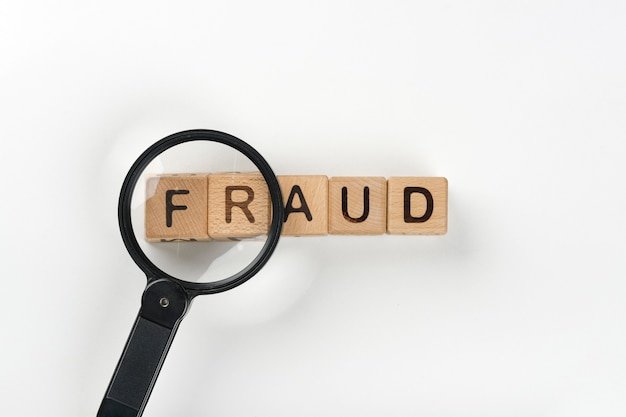How to protect your online store from fraud: expert advice
-
Vladimir Kosygin
Copywriter Elbuz
Fraud in an online store: methods of combating and protection against fraud. What really happens behind the scenes of online shopping? What dark forces could lie in wait for you, hiding in a world of endless possibilities and convenience of shopping? I suggest you get ready for an exciting flight through a network of scams and tricks, where every sale you make may be at stake. Indeed, in our rapidly changing world, keeping your online store from scammers is a task that requires continuous improvement and the use of the most advanced methods of combating. This is exactly what we will talk about in this article. Welcome to the world of safe online shopping!
.jpg)
Glossary
- Fraud: A short word derived from the English term "fraud", which is used to describe fraudulent activities or activities in online stores.
- False orders: Orders that are made using stolen or counterfeit customer data and are intended to defraud or obtain goods or services without payment.
- Fraud: Activities based on intentionally deceiving other people for the purpose of obtaining benefit or causing harm.
- Blacklists: Lists of customers or email addresses that have been identified as associated with fraudulent activity or unwanted activity. Online retailers use blacklists to block access or limit the capabilities of such customers.
- Whitelists: Lists of trusted clients or email addresses. Online stores can whitelist customers to provide them with privileges or special conditions when purchasing.
- Implementing prepayment: The practice of online retailers requiring customers to make an advance payment before completing an order, especially in cases where there is an increased risk of fraud.
- Call tracking setup: The process of installing call tracking and analysis software that allows online stores to improve service quality, increase conversions and detect fraud.
- Temporary closure: Temporary suspension of an online store in order to verify orders, identify a fraudster, or strengthen security measures.
- Automation Tools: Software solutions or tools that help online retailers automate processes such as payment verification, fraud detection, and risk management.
How I dealt with fraud in my online store
In my online store I have encountered various forms of fraud and fraud. These were false orders that were created with the aim of damaging my business and putting my competitor’s site out of action. But thanks to my knowledge and experience, I was able to develop effective methods of combating fraud and protecting against fraud.

One of the methods I used was implementing an analytics system that allowed us to track and analyze anomalous user behavior. We have found that scammers often place orders from certain locations or at certain times of day. With this information, we were able to develop strategies to prevent fraudulent activity and abnormal order volumes.
I also paid special attention to training my sales managers. I conducted special trainings, taught them to recognize false orders and fraudulent activities. My managers learned to pay attention to suspicious situations, ask additional questions to clients and check information in order to protect our online store from fraud.
In addition, we have implemented additional security measures on the online store site. We have improved the customer data verification system and introduced two-factor authentication. This allowed us to strengthen the protection of our customers' payment data and prevent unauthorized access.
Monitoring the analytics and order systems turned out to be one of the most effective methods of combating fraud. We have installed an automatic system for detecting false orders and abnormal user behavior. Thanks to this, we were able to quickly respond to suspicious situations and promptly block fraudulent activities on the site.

I am confident that these methods and strategies effectively helped me fight fraud in an online store. I encourage other online store owners to adopt similar approaches and invest in the security of their business.
In conclusion, I would like to note that fraud in online stores is becoming more and more common. However, with the right techniques and strategies, you can overcome this problem and secure your business. I recommend that you invest in security and training for your employees to successfully prevent fraud in your online store.
Methods of combating fraud
Fraud is fraudulent actions that manifest themselves in different variations. For example, these could be false orders created in order to disable a competitor’s site. Managers will not be able to cope with the flow of fake applications and real clients will suffer as a result. Fraud and fraudulent activities come in different variations. Another manifestation of fraud is traffic boosting. Users do not place orders, but visit different pages of the site and spoil the statistics. In analytics system reports, it will be difficult to distinguish target visitors from bots that simply blur the numbers. Users do not place orders, but visit different pages of the site and spoil the statistics. If there is too much traffic, the site may load slowly or temporarily crash. And then you will have to involve the system administrator in solving the problem. Competition can be very difficult, so owners of trading platforms should prepare for troubles in advance. According to public reports, the number of fraudulent transactions in e-commerce has been rapidly increasing in recent years. Fraudsters use common system vulnerabilities for their own purposes to obtain customer payment information. When it turns out that a site was unable to protect users’ confidential information, its reputation immediately deteriorates. Competitors benefit from this, even if they did not use unfair tools.

Protection against fraud is an integral part of the work of an online store owner. The problem of false orders and online fraud is widespread and requires a careful and comprehensive approach to address it. As the owner of a successful online store, I want to share my experience and give some useful tips on how to prevent fraud and protect your business.
Analysis of the problem of fraud
The negative consequences of fraud can be serious and even threaten the existence of an online store. Among them:
Loss of real orders. False applications from scammers keep managers busy, leaving customers who really want to place an order without a response or information about their purchases.
Search engine filters. The large volume of artificial traffic generated by scammers can attract the attention of Bing and Google algorithms. This may negatively affect the store's ranking and lead to sanctions from search engines.

Methods of combating fraud
Experience shows that effective strategies to combat fraud include the following steps:
Implementation of an anti-fraud system. I recommend using specialized tools and services that can automatically analyze and filter suspicious orders. Such systems can analyze many parameters, including IP addresses, order history and user behavior, to determine how risky it is to accept an order.
Carefully checking orders. It is important to take sufficient time and attention to review each order. Be on the lookout for suspicious details, such as incorrect addresses or mismatched buyer card credentials. Contact the client if anything is suspicious and ask for additional information to verify.
Personnel training. Constant training of managers and employees on security and anti-fraud issues is an integral part of the online store’s operation. Train your employees to recognize signs of fraud and take the necessary precautions when accepting and processing orders.
Data monitoring and analysis. It is important to regularly monitor and analyze order and customer data to identify unwanted trends and anomalies. Having a good analytics system will help you identify suspicious trends and take necessary action immediately.

Fraud protection and customer support
Protecting your reputation and maintaining customer trust are important aspects for a successful online store. All anti-fraud measures should not affect ordinary customers. To do this, it is recommended to:
Explain to clients. On your website and when placing an order, provide a small hint that your store is actively fighting fraud and taking measures to protect customer data. This will help maintain confidence and consumer peace of mind.
Improve the customer feedback process. Fast and efficient communication with clients will help avoid misunderstandings and remove any doubts they have.
Protecting confidential information. Be sensitive to your customers' personal information and provide them with important data protection information to help them feel comfortable shopping at your store.

Best practices and summary
As the owner of an online store, I can say with confidence that protection against fraud is an integral part of a successful online business. My recommendations are based on personal experience and many years of experience working with fraud. They have helped me prevent many potentially negative situations and protect the interests of my clients.
Take a look at the table below to get an overview of which practices are useful in fighting fraud and which ones to avoid:
| What's good to do | What's best to avoid |
|---|---|
| Implementation of an anti-fraud system | Ignoring suspicious orders |
| Carefully checking orders | Accepting all orders without verification |
| Security training for staff | Insufficient training and late updates knowledge |
| Data monitoring and analysis | Ignoring anomalies and optional analytics |
Protection against fraud in online stores is an important and integral part of the work, which requires constant attention and monitoring. Be careful and remember to update your precautions to protect the interests of your business and customers.
Don't forget to look at the article " Call tracking for an online store: what it is and how it works" for more information on protecting your online store from fraud.
Take care of your business, train your employees and follow effective anti-fraud strategies - and you will successfully protect your online store from unwanted consequences and increase customer trust.
.jpg)
How to combat fraud in online stores: safeguards and manual measures
Security in online stores is one of the most important tasks for owners, sales managers and financial specialists. Fraud, i.e. Fraud and false orders can seriously harm a business and affect its reputation. But how to fight fraud? In this section, I will share with you methods and strategies that will help prevent fraud and protect your online store.
Black and white lists
One of the effective methods of combating fraud is the use of black and white lists in your store’s anti-fraud system. Blacklists help filter orders and visitors, excluding those who are suspicious. For example, if your site experiences a surge in traffic or orders, an automated filter can eliminate suspicious orders with duplicate credit card numbers or IP addresses within the same subnet.
However, it should be remembered that blacklists can have some disadvantages. Sometimes they may accidentally contain data from your normal users, which can affect conversions. Therefore, it is important to use them with caution and remember the need for additional monitoring.

Introduction of prepayment
Another effective method of preventing fraud is the introduction of prepayment. If your store constantly experiences false orders and you want to reduce the risks, you can enter an advance payment of 100%. This will help weed out scammers as they will not be interested in losing their money.
However, please note that some customers prefer to pay for orders upon receipt. Therefore, the implementation of prepayment may require more detailed explanation to customers and opportunities to handle cases of product returns or compensation.
Setting up call tracking
Another tool for fighting fraud is setting up call tracking. Call tracking allows you to establish a connection between clients and target traffic sources. This can help in identifying fraud, as it can help identify an increased number of orders from certain sources.
Call tracking is one of the most effective tools for identifying suspicious activity and helps to automatically filter orders and visitors. If fraud is suspected, it is necessary to analyze the data and take appropriate measures to protect the store.

Temporary closure
In extreme cases, when all previous methods do not help solve the fraud problem , you can decide to temporarily close the store. Putting the site into maintenance mode will limit access to it and prevent possible attacks. This is usually done at night when the number of potential customers is minimal.
Temporarily closing a store can help in situations where other methods are ineffective. However, it should be remembered that this should be a last resort and requires additional action to ensure the safety of the store and preserve its reputation.
Results
Combating fraud in online stores requires coordinated work and the use of various methods and strategies. Safeguards, implementing prepayments, setting up call tracking and temporary closures are just some of the tools that will help prevent fraud and protect your business.
However, it should be remembered that each store has its own characteristics and requires an individual approach to solving the problem of fraud. Therefore, it is recommended to seek help from experienced specialists who will help you develop an effective strategy for protecting and preventing fraud in your online store.

Protection against fraud in online stores: effective tools and tips
As an online store owner, one of the most important tasks for you is to ensure reliable protection against fraud. Even if you have no suspicious activity at the moment, this does not mean that your business is immune from fraudulent activity in the future. Therefore, it is important to take the necessary measures in advance and use effective tools to prevent fraud.
One of the popular anti-fraud tools is Stripe Radar. This anti-fraud system is integrated into the Stripe payment service and offers effective solutions to detect and prevent fraudulent transactions. After connecting the payment system, the module automatically starts working without requiring any additional actions from you. I personally used Stripe Radar in my online store and I can confidently say that this tool is truly effective in the fight against fraud.

Another effective fraud protection tool is the WayForPay payment service. It uses a scoring model that analyzes transaction features and effectively detects fraudulent activity. I have also used WayForPay and can attest to its high effectiveness in securing my business.
It is important to note that the choice of an anti-fraud system depends on your goals and budget. Some tools, such as traffic filtering systems, can be useful even without suspicious activity. Therefore, I recommend that you pay attention to the features of each tool and choose the one that best suits your needs.

To effectively protect against fraud in online stores, I offer you the following tips:
Check for suspicious orders: Pay attention to orders with non-standard delivery addresses or questionable contact information. If something seems suspicious, it is better not to risk it and reject such an order.
Use customer behavior analysis systems: Some anti-fraud systems offer solutions that monitor customer behavior on your website. They analyze various parameters such as time spent on the site, order frequency and much more to identify potentially fraudulent activities.
Set limits on payments: One way to prevent fraud is to set limits on the amount of payments. For example, you can set a maximum order amount that can be made without additional verification. This will help reduce the risk of fraud.
Train your employees: It is important to train employees, especially those who work with order processing, to recognize suspicious situations and use anti-fraud tools. This will help improve the effectiveness of your fraud protection.
In conclusion, protection against fraud in online stores is a priority for business owners. Using effective tools like Stripe Radar and WayForPay and applying the recommendations I've suggested will help you ensure your online store is well protected from fraudulent activity. This will give you the opportunity to focus on developing and growing your business.

Frequently asked questions about how to protect your online store from fraud: expert advice
What is fraud and how can it affect my online store?
Fraud is a scam that can lead to financial losses, deterioration of reputation and loss of customer trust. It can manifest itself in the form of false orders, returns, stolen payments and other fraudulent activities.
What measures can be taken to combat false orders and other threats?
There are several methods to combat fraud in online stores, such as using black and white lists, introducing prepayment, setting up call tracking, temporary closures and using automation tools.
What are black and white lists and how do they help in the fight against fraud?
Black and white lists are lists of clients who take part in fraud activities (black lists) or trusted clients (white lists). Using these lists allows you to automatically block false orders and prevent fraud.
How does prepayment work and how can it help in the fight against fraud?
Implementing prepayment means that the customer must pay for the order before it is processed and shipped. This allows you to identify and block false orders, since fraudsters usually do not want to make advance payments.
What is call tracking and how to set it up to combat fraud?
Call tracking is the tracking and analysis of calls received from clients. It can help identify false orders and fraud, and provide additional data for investigations. To set up call tracking, you must use special software and/or service.
How can temporarily closing an online store help in the fight against fraud?
Temporarily closing an online store can be useful to counter fraud. When a store closes permanently or temporarily, fraudsters lose the ability to place false orders or use stolen payment information.
What automation tools can help in the fight against fraud?
There are many automation tools that can help combat fraud, such as fraud detection systems, analytics tools for monitoring customer activity, and identity verification systems.
What are the consequences of fraud for my online store?
Fraud can have serious consequences for online stores, such as financial losses, decreased profits, deterioration of reputation, loss of customer trust, and even business closure.
How can I tell if an order is false?
There are several signs that may indicate a fraudulent order, such as a mismatched shipping address, the use of stolen credit cards, or unusual high-volume orders. However, the most effective way to identify false orders is to use automatic fraud detection systems.
What other steps can I take to protect my online store from fraud?
In addition to the basic anti-fraud methods, you can also use other measures such as multi-level authentication, anti-hacking systems, data protection and training employees about fraud methods.
Conclusion: You are becoming professionals in the fight against fraud!
Thank you for reading this article and becoming more enlightened in the field of combating fraud in online stores! You now have valuable knowledge that will help you protect your business from fraud and false orders.
Don't forget that it is important to take action in advance and keep an eye out for suspicious orders. Learn the signs of fraud and don’t hesitate to use reliable tools and platforms to protect yourself. This is your best ally!
Be wary of unfamiliar customers and check various aspects of orders to ensure they are legitimate. Don't forget to also train your team so they are aware of the latest scam trends and techniques.
Your awareness and determination to combat fraud will make your online store impenetrable to illegal activities. And remember that you are not alone - communicate with colleagues and participate in discussions on this topic.
Now I invite you to leave a comment about what you think about this article. I'd love to hear your thoughts and answer your questions. Together we can make online stores safer and more successful!

- Glossary
- How I dealt with fraud in my online store
- Methods of combating fraud
- How to combat fraud in online stores: safeguards and manual measures
- Protection against fraud in online stores: effective tools and tips
- Frequently asked questions about how to protect your online store from fraud: expert advice
- Conclusion: You are becoming professionals in the fight against fraud!
Article Target
Educate readers about methods to prevent fraud in online stores and help them protect their business.
Target audience
Owners of online stores, sales managers, financial specialists
Hashtags
Save a link to this article
Vladimir Kosygin
Copywriter ElbuzWords are tools, and my mission is to breathe life into online store automation. Welcome to the world of my texts, where every line fills business with meaning and efficiency.
Discussion of the topic – How to protect your online store from fraud: expert advice
Informing readers about the main methods of combating fraud in online stores: tips for protecting against false orders and fraud.
Latest comments
9 comments
Write a comment
Your email address will not be published. Required fields are checked *













.jpg)










John
Interesting post! I encountered fraud in my online store. What are the main anti-fraud methods you use?
Lukas
Hello John! In our online store, we actively use IP address verification to identify the client’s location. This helps us identify suspicious activity. We are also monitoring changes in fraudulent order patterns. I hope this is useful information for you!
Sophie
Hello Lucas! We also use a customer behavior analysis system. It looks at purchasing experience, previous orders and payment history to calculate the likelihood of fraud. This helps us prevent fraudulent orders before they occur. What else can be done to combat fraud?
Emilio
Hi all! To protect against fraudsters in online stores, we also use two-factor authentication for all payments over a certain amount. This reduces the likelihood of fraud. Has anyone tried using special predictive algorithms to detect potential fraudulent orders?
Valentina
Hello Emilio! We also use machine learning algorithms to identify suspicious orders. They analyze large amounts of data and find hidden connections and patterns that may indicate fraud. This is a very effective method. What experience do you have?
Vladimir
Hello, dear participants! I saw your active discussion on the topic of combating fraud in online stores. I would like to add that in addition to the above methods, it is important not to forget and organize regular training for employees on fraud recognition. Trained employees are able to quickly recognize and respond to suspicious orders.
Sylvie
Hello Vladimir! I agree with you, employee training is a key aspect of the fight against fraud. In addition, it is important to cooperate with other online stores to exchange information about fraudulent activities and warn each other. Have you gotten good results from such partnerships?
Gustavo
Hello Sylvie! I completely agree. We actively participate in the online shopping community to share information about fraud methods and warn others. This allows us to stay abreast of the latest trends and develop new strategies. Are your interests also in this direction?
Stanisław
Hi all! I personally believe that all these methods of combating fraud are ineffective. It’s better to give up online shopping altogether and return to traditional shopping. Haven't you all discovered that the Internet only creates new problems?